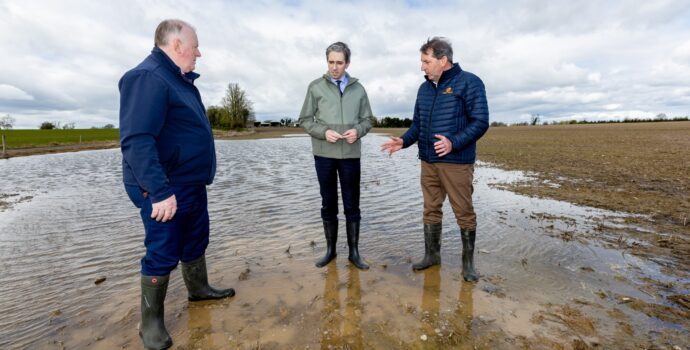IFA President Sets out Irish Concerns on Cap Reform in European Parliament

Speaking at a conference on CAP reform in the European Parliament with Agriculture Commissioner Dacian Ciolos, IFA President John Bryan said Irish farmers have serious concerns that the Commission proposals have the capacity to undermine active producers, interfere with farmer’s normal business decisions and, at a national level, reduce the capacity of Irish agriculture to contribute to our much needed economic recovery.
John Bryan said, “The proposal to move to a uniform per-hectare payment by 2019 is of huge concern for Irish farmers. At farm level, the changes in payment levels will cause huge disruption, in a very short time period, undermining viable businesses. It is too simplistic a proposal, as it takes no account of the major differences in productive capacity of land across Ireland and is not supportive of the active farmer. Overall, it will reduce the growth potential of Irish agriculture.”
Member states must be given the flexibility to implement a payment system that supports production, ensures viable farm businesses, and reflects existing production patterns. The IFA delegation also met Irish MEPs to brief them on the views of Irish farmers.
The IFA President said, “On a related note, the uncertainty created by the 2019 flat-rate proposal combined with a future reference date of 2014 for the new payment system is causing disruption in the land market and is affecting farmer’s business decisions. This issue must be addressed immediately.”
Mr Bryan said, “The Commission’s proposals on Greening willimpose additional costs on the farmer and interfere with production decisions and it is unclear what environmental benefits they will deliver.The greening measures must be revised so that they are voluntary, can be incorporated into farmer’s normal practices, and provide options that take account of the differing environmental conditions across the Member States.”
Ireland has participated strongly in Rural Development programmes in the past, recognising the role that it plays in the continuation of farming in Disadvantaged Areas, improving on-farm competitiveness and supporting agri-environment measures at farm level. Future funding levels for Member States must take account of past participation, and Member States must be allowed the flexibility to implement measures that are of most relevance to their particular regions, farming population and structure.
Concluding, John Bryan said, “The retention of the main instruments for Emergency Market Support is of great importance. With growing price volatility, it is critical that these measures are effectively used to put a floor on prices at times of crisis. However, the proposals must be strengthened in two ways. Funding additional to the Reserve for Agricultural Crises must be identified to ensure that these measures can be enacted at a meaningful level. In addition, the conditions under which the measures are activated must be clarified.”




